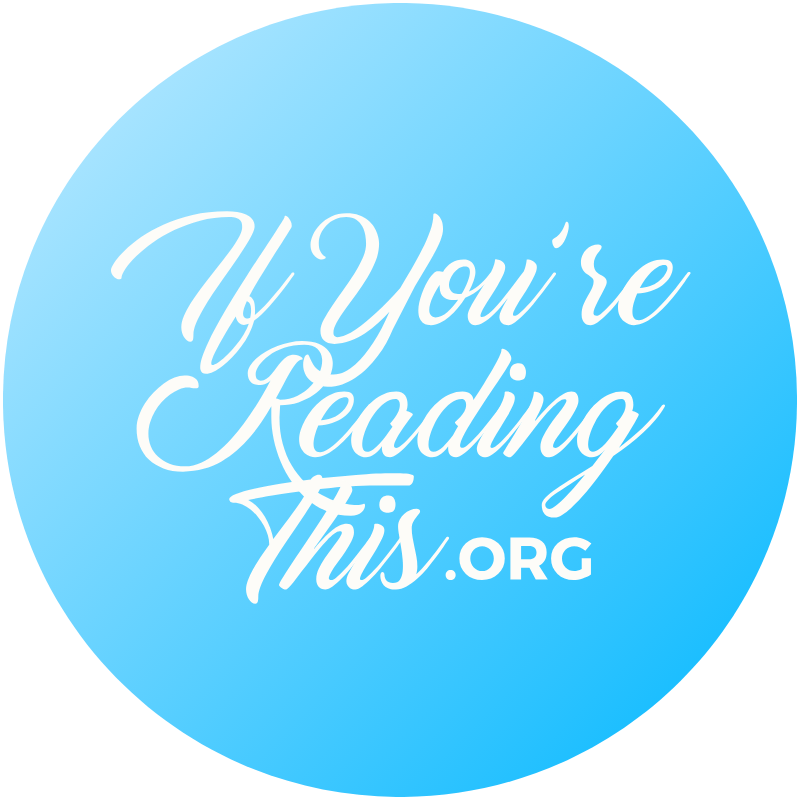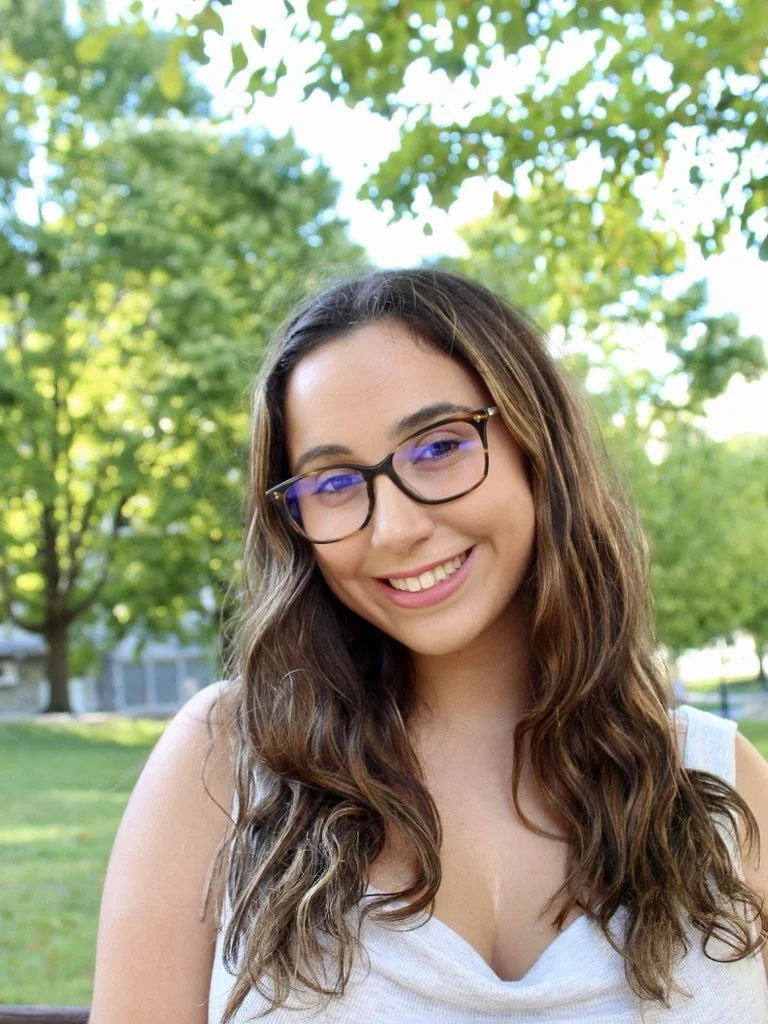Sofia W.
Photography by Ally Szabo
If you’re reading this, recovery is not black and white.
Reading that sentence might bring up some confusion – by black and white I mean “either you recover and feel better or you don't.” That exact way of thinking and viewing recovery is the root of the problem that many of us fall victim to, including me: waiting for the moment that everything feels perfect so you can finally say that you are doing better or finally healed. What I have come to realize and what I will continue to share within this letter is that having that rigid mindset is actually what has kept me from acknowledging how far I have come.
When I discuss my journey, I always say that I have been anxious and struggled with mental health in some capacity for as long as I can remember. From undergoing childhood medical trauma to developing what I now know as OCD (Obsessive Compulsive Disorder) tendencies and suffering from GAD (Generalized Anxiety Disorder), I always felt as if I had been struggling forever and could “never catch a break.” I noticed feelings of hopelessness and discouragement about my mental health as I was going into high school. Right before the pandemic, I transferred to a new high school in my junior year and was finally starting to feel acclimated to my new environment when COVID hit.
Due to all the alone time that I now had to myself, I started noticing just how bad my neglected mental health had become. I remember thinking to myself “it can't get worse than this. I wonder when I can finally catch a break.” I remember waiting and waiting for when it would all click and it would all get better, but that day never seemed to come and I felt myself getting worse and worse. I had an onset of intense OCD symptoms in December of 2020. OCD was something that I was not educated on so I quite literally thought that I was going crazy. I was getting all of these intrusive thoughts and randomly questioning things that I have known to be true my entire life. It felt so real. It kept on getting worse – I thought I was going through an identity crisis and I felt completely alone because I was too scared to open up to anybody about what was truly going on. All I could focus on were thoughts like “when I can finally be recovered from these awful nasty thoughts and feelings?”.
I had ups and downs during the first year of OCD symptoms, and periods where I felt slightly better and then the next day waking up and feeling like I didn’t even know who I was. It was exhausting and I could only focus on the fact that I was STILL struggling at times, and not the fact that things were actually slowly getting better.
I formally got diagnosed with OCD in September of 2021 during the beginning of my freshman year at Villanova. I felt hope in finally knowing what was wrong with me so that I could then “cure” it. I started doing more research, felt less alone, and started medication and more targeted therapy.
Still, instead of focusing on how I was getting better, I couldn’t shake the fact that I still wasn't completely anxious and OCD-free. A couple of months after my diagnosis my feelings of hope were struck down when I found out that OCD was chronic. That means OCD can never go away. My hopes and dreams of finally being happy and able to be myself again without this mental illness evaporated. I felt that nothing that I could do would ever help me and that I was hopeless. Even though the therapy, medication, and feeling less alone in my disorder were helping me have more good days, it wasn't enough for me. I invalidated my progress because I still had days where I felt crappy and still had the same taboo and obsessive scary thoughts. The word “chronic” and the presence of my anxiety was all I could focus on. Even though I had better days, it reminded me of what I thought was my new reality – I had convinced myself I was never getting better.
One day I was scrolling on Instagram when I saw an infographic pop up on my feed with a zigzag line and the words “recovery is not linear.” I sat for a second thinking about how this could be true. I thought to myself “so even if I'm still struggling that doesn't have to mean that I am not recovering?”. For the first time after seeing that post, it started clicking for me that the construct of recovery I had created in my head was, essentially, a load of crap.
You can have the best day of your life but still, come home and have a trigger. You can have 5 decent days and 2 bad days in a week, yet a few months ago all 7 days were bad. Some days I get triggers and work through them easily and other days a trigger that hasn't bothered me in months comes back and I am stuck on that for days.
With any mental disorder, I have found that our society has seen “being healed” as “being perfect,” which is not attainable. At the end of the day, we are all human beings and there will always be setbacks. If you are expecting that one day, all your problems will go away, and that you will be 100% happy and worry-free, then you will never feel like you recovered and neglect all the other things that have helped you come so far.
When I look at myself objectively in the last two years of this journey of fighting OCD, I have grown tremendously, even though there is not a day that goes by where I don’t have intrusive thoughts. And that's okay. That doesn't take away from the validity of my recovery. There are days that I can feel and see how far I have come. There are also days when I feel so low and deep in a spiral that I still get discouraged and fall victim to my old toxic mindsets about recovery. One of the main things that I have learned with OCD is that you will never eliminate doubt and uncertainty, but you have to learn how to live with their presence and reshape your mindset. It is the same mindset with talking and thinking about recovery, especially from a mental illness: there will always be bad days, bad weeks, and bad months but that doesn’t take away from any of the progress that you have made.
I reached out to @Ifyourereadingthisnova after my initial OCD diagnosis in October of 2021 excited to write a letter to shine a light on my journey and help other people feel less alone. But shortly after I decided not to write that letter because, in my eyes, I was not fully recovered and I was still struggling with the disorder. I thought “how could my story help anyone if I am still struggling?”. So I talked myself out of writing the letter.
I am sitting here today, 11 months later, writing this letter when I still have bad days where my OCD is awfully loud, I feel as low as possible, and doubt that I am even making any progress. But by reshaping my perspective on recovery and realizing and accepting that there will never be a day that I will be 100% happy and perfect, I finally realized that my story can help people be easy on themselves throughout their journey. I am still a work in progress and have many things to work towards and heal from.
Nobody's journey is the same, and whatever mental battles you are struggling with, you will recover in your own way. That is one thing that I am certain of. It's okay to be perfectly imperfect, it's okay to have uncertainty. One thing that I do know is that I will be okay regardless, and so will you.
Sofia W., Villanova University
Connect With Us
To follow IfYoureReadingThis at Villanova on Instagram, get in touch with our chapter, and learn about more resources available to Villanova students, visit our chapter’s homepage.
AUTHOR CONTACT
This author has opted to allow readers who resonate with their story to contact them. If you would like to speak to the author of this letter about their experience, please use the form below.

